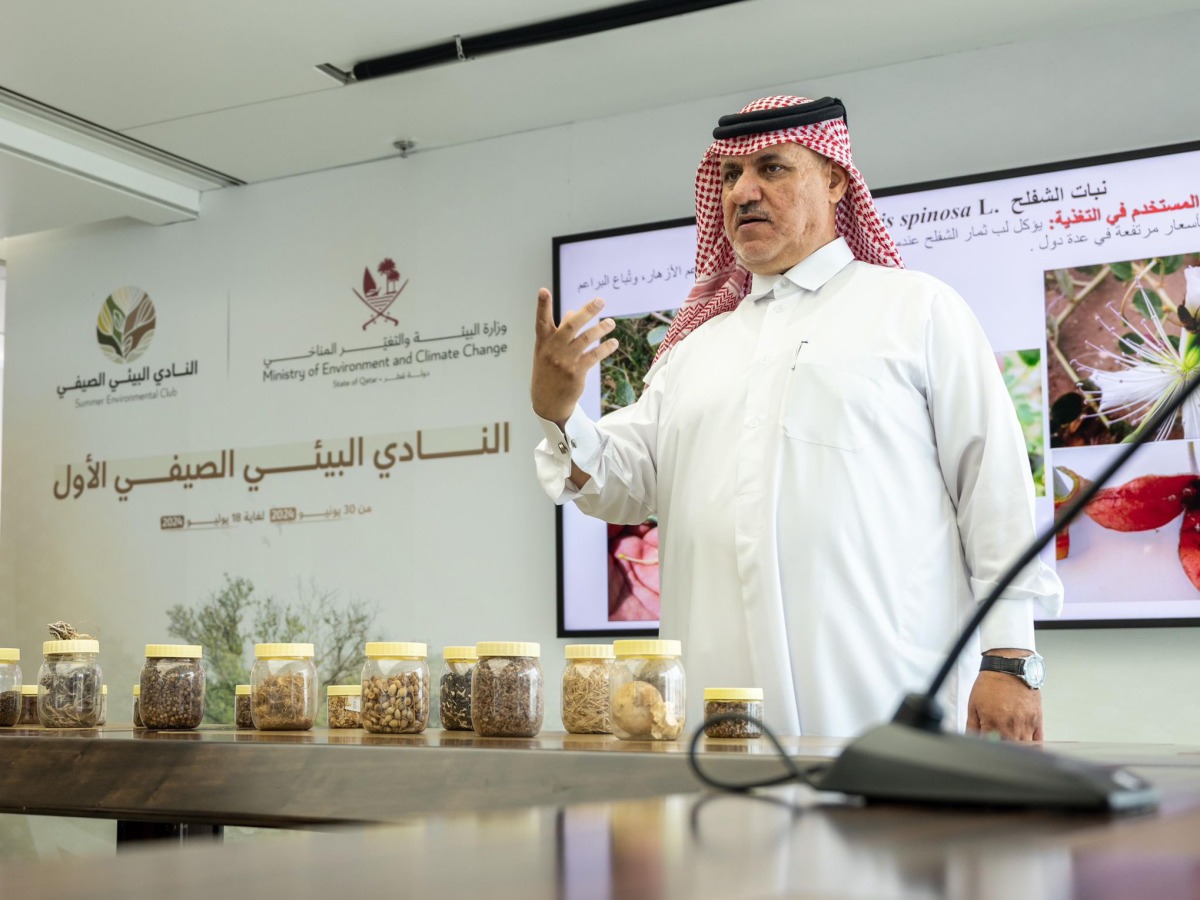The Ministry of Environment and Climate Change (MECC) recently wrapped up its first three-week Summer Environmental Club in Doha. The club featured a diverse range of activities, including lectures, workshops, and field visits conducted by environmental experts. Participants had the opportunity to learn about the importance of conserving natural resources, sustainability, and protecting various forms of life on land, in the sea, and in the air.
One of the key focuses of the club was on educating students about native plants in Qatar and their medicinal benefits, as well as the role of Qatar’s local birds in maintaining environmental balance. Field trips were organized to places like the Qur’anic Botanic Garden, the National Museum of Qatar, and the Rawdat Al Faras center for Houbara Breeding to enhance the learning experience.
During the second week of activities, students had the chance to attend workshops on topics such as utilizing food waste for organic composting and recycling old fabrics. They also visited the Seashore Group facilities to learn about environmental protection, sustainability, and recycling efforts. The week concluded with a visit to the Central Radiation Laboratory at MECC to understand its role in environmental radiation measurements and control.
In the final week of the Summer Environmental Club, participants visited the JANAN Research Vessel and Msheireb Downtown Doha to learn about the types of reptiles living in Qatar’s environment and their importance in maintaining the food chain and biodiversity. They also visited the Domestic Solid Waste Management Center to learn about recycling stages and technologies. The club concluded with a lecture on the importance of afforestation in addressing Climate Change and showcasing MECC’s efforts to support Qatar’s initiative to plant 10 million trees by 2030.
Overall, the Summer Environmental Club organized by the Ministry of Environment and Climate Change provided students with valuable insights into environmental conservation, sustainability, and the impact of human activities on the environment. Participants had the opportunity to engage in hands-on activities, workshops, and field visits that enhanced their understanding of key environmental issues. By educating and empowering the next generation, initiatives like the Summer Environmental Club play a crucial role in promoting a more sustainable and environmentally conscious society.











